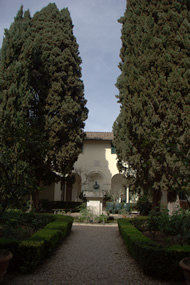Even if you’ve never studied with the Open University before, you’ll probably be aware of the central role that audio-visual materials play in our teaching resources. In fact, from the earliest days of the university (which was established in 1969), the image of the OU broadcast, delivered by a kipper-tie-wearing lecturer and screened on the BBC at some ungodly hour, has become a fondly remembered (if sometimes gently ridiculed) feature of our teaching. But we’ve moved a long way past these stereotypes now. Today, our modules offer an exciting variety of audio-visual resources, from short documentaries filmed in exotic locations to intimate discussions between academic experts. Everything is carefully planned and integrated with the rest of our study material so as to support students in their studies as effectively as possible. It’s hard work, but it’s also one of the most interesting and rewarding tasks for those of us working on modules in production – and with an unprecedented number of new modules about to be launched by the Classical Studies department, we wanted to take this opportunity to give you some more insight into just how this process is carried out.
I’m the chair of the new Latin literature and language module, Classical Latin: the language of Ancient Rome (A276), which will have its first presentation in October 2015. Earlier this year, the module team finished work on a whole suite of audio features which will be interspersed throughout the three Blocks of the module. A few of them are specifically designed to support the language sections – so, for example, students will be able to hear the Latin texts of some of the literature that they will be studying spoken out loud – but the majority are related to the module’s literary and cultural units. A276 focuses on literature written in the Augustan period, from Livy’s histories of early Rome, to Virgil’s Aeneid, to the love poetry of Ovid, and addresses the central theme of how such texts were vehicles for exploring Roman identity. The units that we’ve been writing, as part of the core teaching materials, offer lots of different angles on this – but sometimes, the best way of bringing these texts and the debates around them to life is to talk about them.
So, from an early stage in the module’s production, we’ve been working with JustRadio, a production company who have a great deal of experience with the OU, as well as in making programmes for the BBC and other broadcasters. They’ve helped us to identify what sort of features would be most useful and interesting for our students, and have enabled us to really get the best out of our material. At the heart of many of these features are conversations with leading academics and professionals, from a discussion about epigraphy with the Cambridge classicist Mary Beard, to an on-site interview with a botanist at Kew Gardens who regularly uses Latin in her day-to-day work. One of the most memorable was a 20-minute piece that we put together for Block 3 of the module, in which students spend some time thinking about the process of translation. I went to King’s College London to interview two academics about their views of translation: William Fitzgerald talked about the scholarly side of things, and the history of different kinds of translation, while Henry Stead gave us an insight into his own practice as a translator of Latin literature. Conducting the interviews in their offices was just the first step, though. Next, my own introduction and links had to be recorded in studios on Wardour Street, Soho (a historic centre of film and radio production in the UK), where I was closeted in a tiny booth behind glass, feeling like I might have been about to read the news on the Today programme. And finally, JustRadio edited these links and the conversations into a seamless piece of audio, interwoven with clips of Henry’s recital of his own poetry, along with archive material of the poet Ted Hughes reading from his ‘Tales From Ovid’. The result is, we think, a really engaging way of getting students to think about what’s at stake when we translate, as well as providing an opportunity to listen to different ways of performing poetry.
JustRadio helped us to find other ways of bringing Latin literature to life, too. Not wanting to be outdone by the exotic trips undertaken by our colleagues working on A340, our new Roman Empire module, we also found space in our schedules for a quick trip to Rome. Not merely an excuse to sample pizza and gelato, this turned out to be a real boost to some of the audio features that we wanted to include in the module’s earlier blocks. It gave us the opportunity to speak to people like Chris Smith, Director of the British School at Rome, about his expert knowledge of early Rome, along with Diana Spencer, a leading scholar of Augustan literature – but it also provided crucial atmosphere and a sense of location for our own discussions of Augustan Rome. We didn’t really believe it until we heard the first cuts of the features ourselves, but it was so much easier to conjure up the importance of what was happening in the city of Rome itself when all this great literature was being produced, when we could connect our discussion to a real geographical location – and hopefully our students will feel a sense of our excitement too.
Now that the long process of writing and interviewing, editing and mastering is over, all that remains is for us to unleash our efforts on our first cohort of A276 students. If you’re interested in being among them, and would like to know more about what this module has in store, then our short introductory audio is online now, and you can read more about it on the OU website, too.
